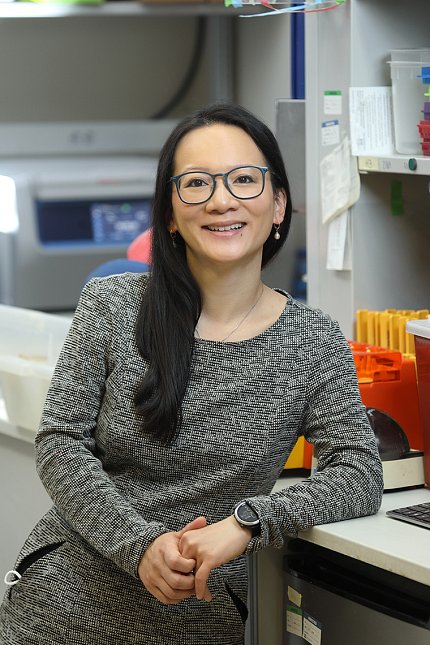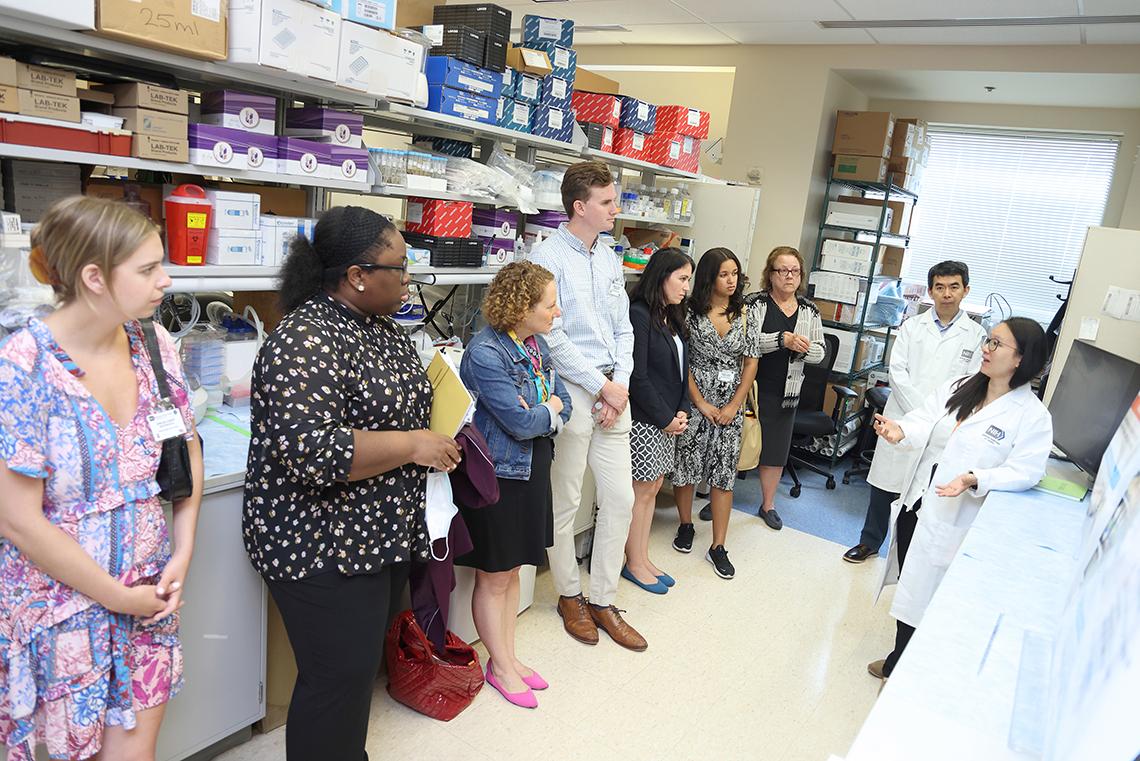Nguyen’s Career Leads to Path of Discovery

In recognition of Women’s History Month, the NIH Record is celebrating the many talented, driven women working at NIH. Throughout March, we’re featuring stories of investigators and administrative leaders from across the agency.
Growing up, Dr. Rosa Nguyen’s parents always told her: “Grind a metal block and one day you will make a needle.” It’s a Vietnamese saying with the moral that success comes from hard work.
“I live by that belief,” said Nguyen, a pediatric oncologist and physician-scientist at the National Cancer Institute (NCI). “Without hustle, it’s hard to achieve something in life.”
Her determined attitude brought her to NCI’s Center for Cancer Research (CCR), where she runs her own lab. It’s focused on developing new cellular and cytokine-based immunotherapies for pediatric solid tumors, such as neuroblastomas.
“I cherish the many encounters I’ve had with patients and their families, who told me that I was able to help them get through treatment and make a difference in their lives,” she said. “I’m proud to have put together a great lab with budding and established scientists who wake up every day with the motivation and passion to find a new way to cure childhood cancer.”
Before starting her own research group, she completed postdoctoral fellowships at the National Heart, Lung and Blood Institute and NCI. “I was in awe of the way science and clinical care take place in the CCR,” she recalled.
Math, biology and chemistry classes first sparked her interest in science. Her pediatrician inspired her to consider a career in medicine.
“I remember sitting in the waiting area and seeing children of all different ages and with different problems and she could help them all—wow!,” she said, on the I am Intramural blog. “Over time, I realized that I, too, wanted to be a pediatrician and a role model to young children.”
In 2023, she became a Lasker Clinical Research Scholar, an NIH-funded initiative that supports early-career medical scientists and helps bridge the widening gap between cutting-edge research and improved patient care.
There have been several positive changes in biomedical research since she first started medical school. There are many new techniques and methods that didn’t exist a few years ago.

Photo: Chia-Chi Charlie Chang
Recently, for instance, Nguyen and her colleagues developed a new technology to help T-cell therapies work better against solid tumors in mouse models of adult and pediatric cancers.
T-cell therapy is a type of immunotherapy in which a patient’s own immune cells are removed from the body, manipulated and multiplied in the lab before being given back to the patient. Historically, T-cell therapy has been successful in treating many blood cancers. That same success hasn’t been seen in the treatment of solid tumors.
“Solid tumors lack the optimal environment for T cells to function,” she said, “because their surroundings lack the nutrients and signals needed to help stimulate and support T-cell activity.”
To address the problem, the researchers developed a method where they attached two molecules called cytokines to the surface of engineered T cells. The engineered cells containing the cytokines lead to greater eradication of tumors.
Nguyen appreciates the steps NIH has taken to create a more inclusive biomedical workforce. Despite these positive developments, she said, some female trainees still have a hard time balancing their career with family responsibilities.
“Reproductive health and childcare continue to be the most challenging aspects that women in academia face when they want to have children,” she said. “These problems used to be hard ‘back in the day’ but continue to pose a true challenge to women who decide to remain in academia and have children nowadays.”
She advised those considering a career in research to find mentors who “are invested in your success, willing to teach and promote you.
“A career in science and medicine is a beautiful path of the unknown that leads you to the excitement of discovery and can culminate in true change,” Nguyen concluded. “Although it can be hard, it has been a very rewarding journey for me.”
